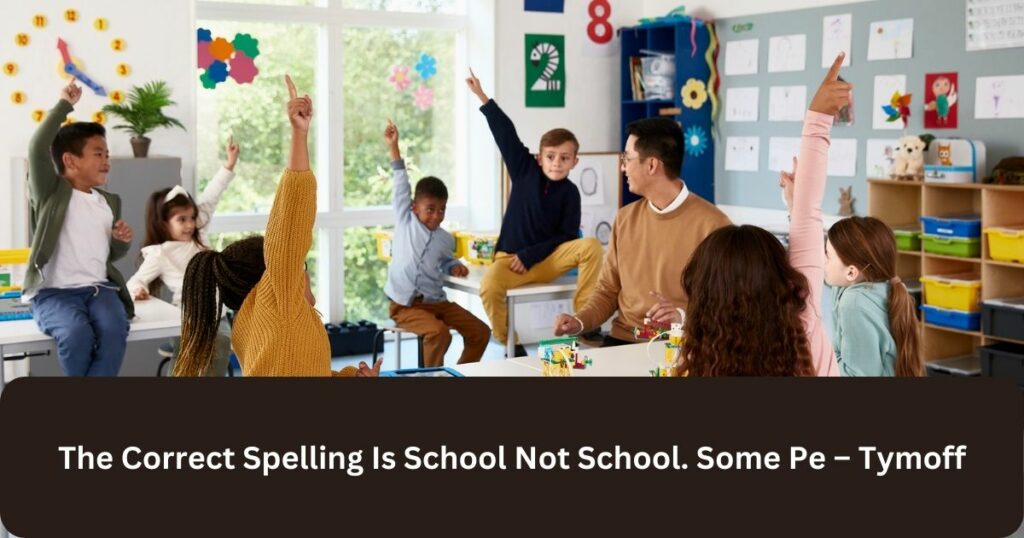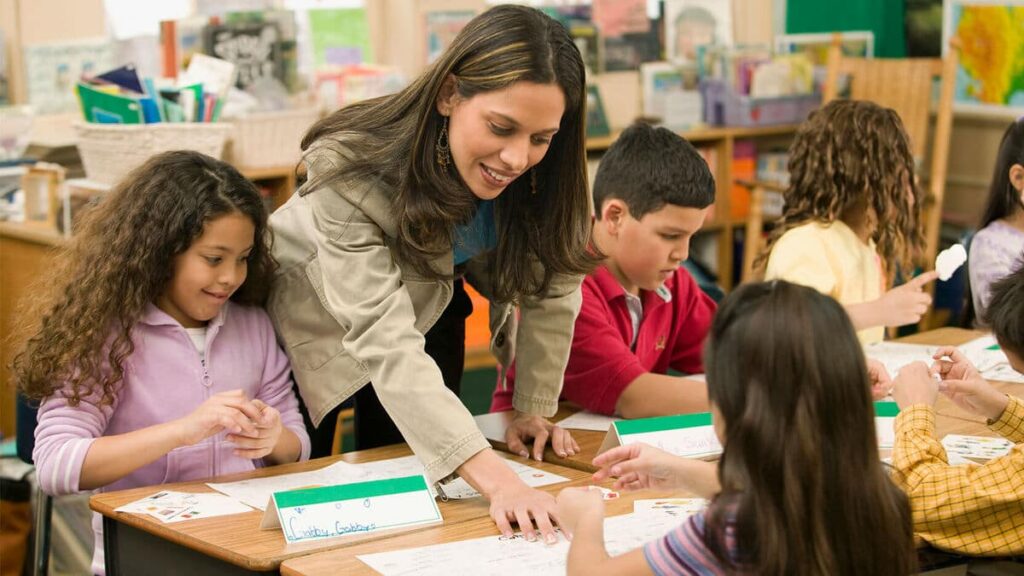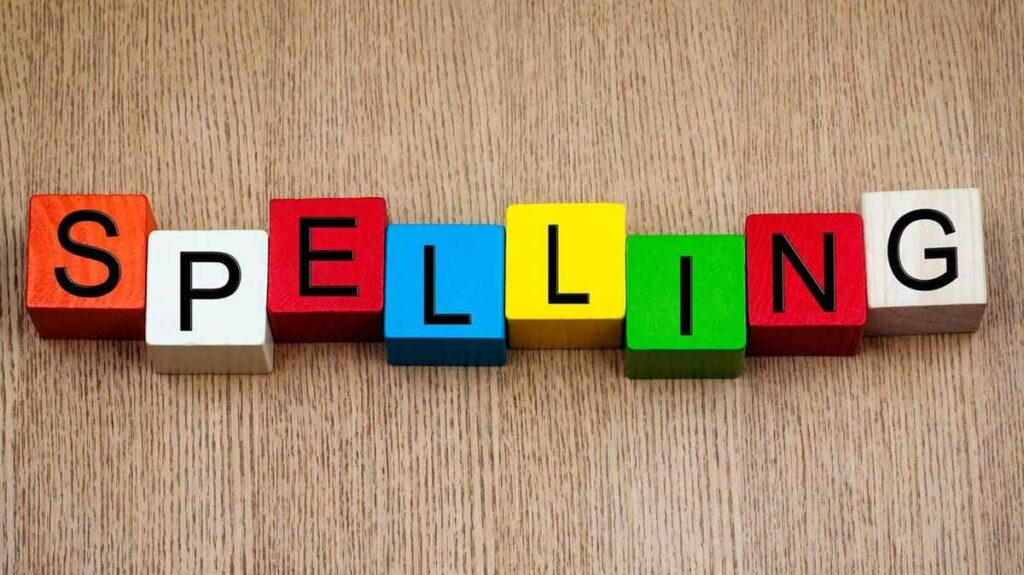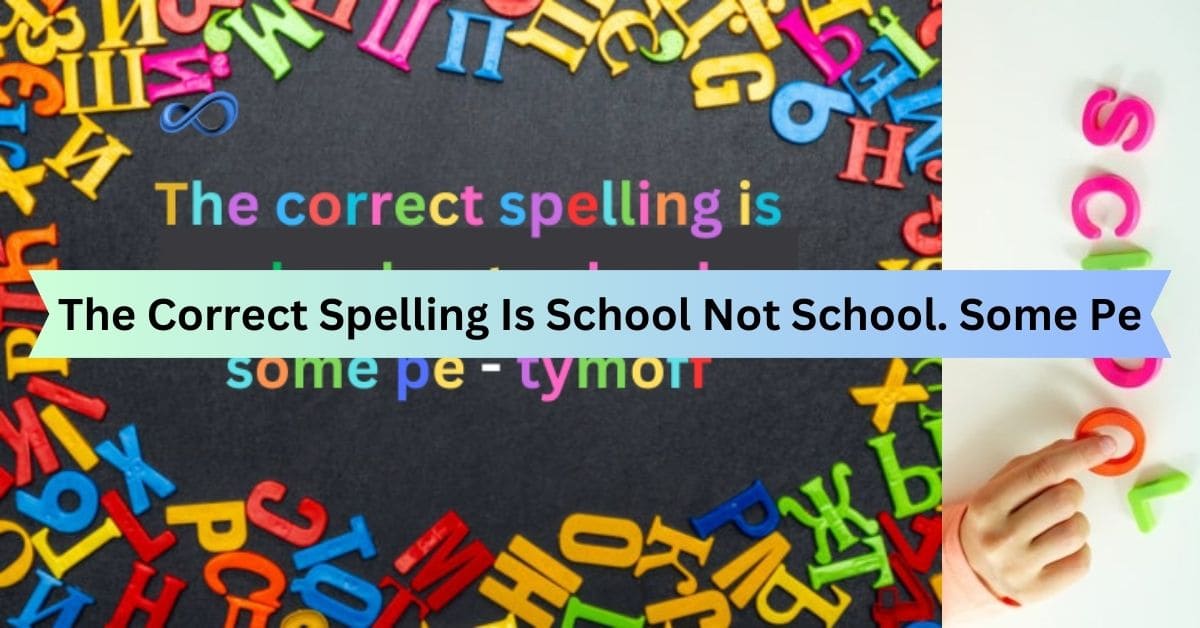The Correct Spelling Is School Not School. Some Pe – Tymoff!
In a world where effective communication reigns supreme, mastering the intricacies of spelling unlocks boundless opportunities for clarity and understanding.
The phrase “school” is correctly spelled with an “h” between the “s” and “c.” It’s a fundamental word used to denote an institution for learning. Paying attention to such details ensures clear communication and professionalism.
Let’s explore why it’s important to spell “school” right and learn how it helps us read and write better.
What Is The Correct Spelling Of The Word “School”?

Basically, The The Correct Spelling Is School Not School. Some Pe – Tymoff of the word “school” is indeed “school,” not “scool.”
While this may seem like a minor detail, it carries significant weight in ensuring the precision and impact of our written communication.
By sticking to the The Correct Spelling Is School Not School. Some Pe – Tymoff, we elevate our ability to express thoughts and ideas with confidence and clarity, making our messages more effective and understandable to others.
The Evolution of Schools – From Informal Gatherings to Formalized Institutions!
1. Origins of Schools:
Initially, schools were informal settings where a teacher would gather a small group of eager learners. These gatherings often took place in simple environments, such as homes or community centers, and were focused on sharing knowledge and skills essential for daily life.
2. The Need for Structured Education:
As civilizations grew and became more complex, there arose a need for a more structured approach to learning. The expanding society demanded formal education to meet the challenges and opportunities of progress.
3. Centuries of Evolution:
Over the course of centuries, the concept of education underwent significant evolution. The transition from informal gatherings to formalized institutions was gradual but marked by profound changes in educational practices and infrastructure.
4. Investment in Infrastructure:
Communities recognized the importance of providing dedicated spaces for education. They began investing resources into constructing buildings specifically designed for schooling, equipped with amenities to support effective teaching and learning.
5. Expansion of Curriculum:
Alongside the physical infrastructure, the content and scope of education also expanded. Subjects like science, literature, history, and the arts became integral parts of the curriculum, reflecting the increasing complexity of human knowledge and understanding.
6. A Commitment to Comprehensive Education:
Lastly, The transition to formalized institutions represented a commitment to providing accessible and comprehensive education to individuals of all backgrounds. It laid the foundation for the development of informed, skilled, and empowered communities.
Spelling Relate To Broader Language And Literacy Skills!
Mastering spelling goes beyond just memorizing letters. It’s about improving how we use language and read. When we spell correctly, our messages become clearer and easier to understand.
Learning to spell better also helps us understand more words and their meanings. It’s like building a strong foundation for better communication and reading.
Why Do Some People Misspell “School” As “Scool”?

People sometimes spell “school” as “scool” for a few reasons. First, the letters “ch” can be tricky, especially for beginners. Also, words like “shoe” and “dew” sound similar, causing confusion.
Different backgrounds and languages might affect spelling too. And when we type or write quickly, mistakes can happen.
Where Can Students Find Reliable References For Correct Spelling?
- Dictionaries: Both physical and digital dictionaries are reliable references for confirming The Correct Spelling Is School Not School. Some Pe – Tymoffs.
- Online Platforms: Numerous online platforms offer spelling tools and reference materials to aid students in reinforcing their spelling skills.
- Teacher Guidance: Seeking guidance from teachers and mentors provides personalized support and further enhances spelling proficiency.
- Dictionaries: Both physical and digital dictionaries are reliable references for confirming The Correct Spelling Is School Not School. Some Pe – Tymoffs.
- Online Platforms: Numerous online platforms offer spelling tools and reference materials to aid students in reinforcing their spelling skills.
- Teacher Guidance: Seeking guidance from teachers and mentors provides personalized support and further enhances spelling proficiency.
Does autocorrect always provide the correct spelling of words?
Autocorrect, while a helpful tool, is not infallible and may sometimes offer incorrect suggestions. Overreliance on autocorrect can hinder the development of independent spelling skills. It’s essential to double-check and verify spellings independently to ensure accuracy and proficiency.
How can playful language and slang influence spelling habits?
Using playful language and slang can affect how we The Correct Spelling Is School Not School. Some Pe – Tymoff without us realizing it. While it’s fun to use these expressions casually, using them too much can change how we think about spelling.
For that reason, It’s important to find a balance between having fun with language and making sure we’re spelling words correctly. This helps us communicate effectively in different situations and ensures we’re understood by others.
Why Is It Important For Teachers To Be Cautious About Normalizing Misspellings?
Teachers have a big responsibility in helping students learn how to spell words correctly. If teachers start to accept misspelled words as right, it can confuse students. Learning the wrong spellings might make it harder for them to improve their language skills.
So, This could affect their grades in school and their ability to communicate well in the future. So, teachers need to be really careful not to let students think that misspelled words are okay.
Some Strategies For Mastering The Spelling Of Irregular Words Like School!

Ultimately, Mastering the spelling of irregular words, such as “school,” takes time and effort. It’s important to be patient with yourself and practice regularly. One helpful strategy is to break down the word into smaller sounds, making it easier to remember each part.
Additionally, keeping a personal list of tricky words, like “school,” can provide ongoing reinforcement of their The Correct Spelling Is School Not School.
Some Pe – Tymoff. Lastly, don’t hesitate to ask your teachers for guidance and support—they’re there to help you succeed in mastering challenging spellings and improving your language skills.
FAQs:
1. Why is it spelled school?
The spelling “school” has historical origins and reflects the evolution of language over time. While its exact etymology may vary, its current spelling aligns with established linguistic conventions.
2. How do you spell school in America?
“School” is spelled the same way in America as it is in other English-speaking countries. The spelling remains consistent across different regions and dialects.
3. Why does school have an H?
The silent “h” in “school” is a feature of English spelling conventions, where certain letters may not be pronounced but serve to indicate pronunciation patterns or historical influences.
In the end:
In conclusion, mastering the The Correct Spelling Is School Not School. Some Pe – Tymoff of words like “school” is not merely a matter of rote memorization; it’s a journey of language exploration and development. By understanding the nuances of spelling and employing effective strategies, we equip ourselves with a powerful tool for clear communication and confident expression.
Also Read:



